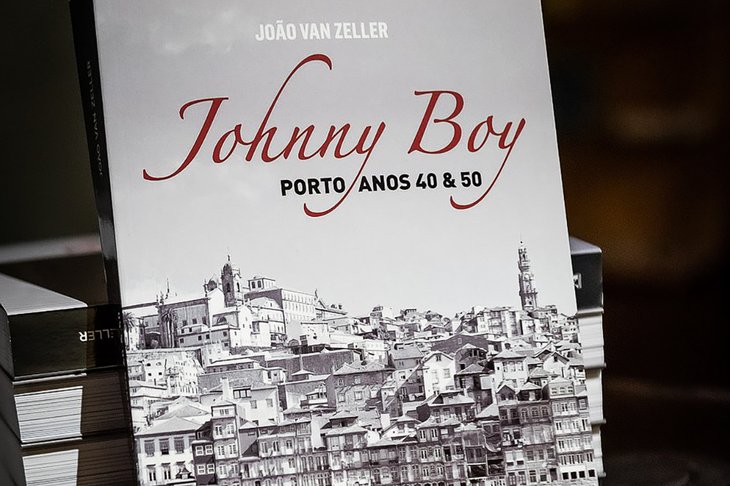A book of 1940 and 1950s Porto by João Van Zeller
Article

"Johnny Boy, Porto 40 & 50" is a book that Van Zeller describes "as depicting the Invicta in its unmatched dedication to work, to entrepreneurship and to the defence of its character". The book was launched online and shared on Youtube, with guests Rui Moreira and José Miguel Júdice.
Rui Moreira, Mayor of Porto, lawyer and television commentator, José Miguel Júdice, and João Van Zeller, author, gathered and "toured" through Porto, to see what has changed and what stayed the same regarding culture and society from the twenty century till present time. This is what the book titled "Johnny Boy, Porto Anos 40 & 50" offers.
The initiative integrates the launch of the 2nd edition of "Johnny Boy, Porto Anos 40 & 50", by João Van Zeller and published by Edições Afrontamento.
The original launch was set to be on 23rd April, at the Fundação Vieira da Silva Museum, but due to the current pandemic, the format had to be rearranged. The launch was done online and shared on YouTube.
The book "tours" readers through the Invicta of the last century, in a entrepreneurial and melancholic or even grey city, where joy seemed to happen only "on the night of São João or when celebrating football".
This book also shows what has changed in the city of Porto, the city that we have in the 21st century. "21st century has radically changed the city; it has boomed the city, with youth, modernity, and cosmopolitanism, while keeping and enhancing its unmatched dedication to work, to entrepreneurship and to the defence of its character. This changes managed to consolidate the love of Porto, regardless of the physical distances that separate us for over 50 years".
José Miguel Júdice considers the book the description of "true democracy, an equal bourgeois and liberal society and chooses this as "a seminal book", where one "finds the narrative "of the first years of a great social capillarity".
For Rui Moreira, this book "is much more than a book of memories in the Anglo-Saxon tradition", because it tells stories "of a changing society, in a period of the loss of innocence".